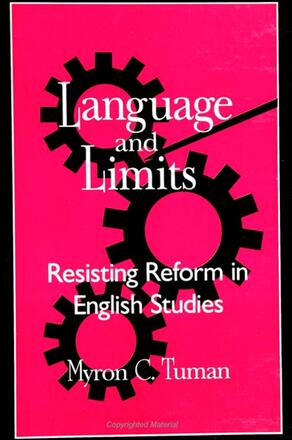
Language and Limits
Resisting Reform in English Studies
Alternative formats available from:
Presents a clear and forceful counter-statement about tensions and trends in contemporary English studies, offering at the same time a carefully reasoned critique of rationalistic forces within education and culture generally.
Description
What could be more commonsensical than the notion that students need to become more critical readers and writers, subjecting the ideas, beliefs, and attitudes they encounter to closer, "critical" scrutiny? Yet is not the deep suspicion of common sense one of the founding principles of critical pedagogy? Here at last is a book that attempts to look closely at the broad cultural and historical assumptions behind efforts to remake how we teach both composition and literature, in the latter case, how the rooting out of authorial or textual bias is replacing traditional notions of identification and empathy. The result is a broad cultural history of English studies and how its distinctive notion of deep language has fostered a special kind of resistance to reforms over the last two hundred years.
Myron C. Tuman is Professor of English at the University of Alabama. He has written several books, including Word Perfect: Literacy in the Computer Age and A Preface to Literacy: An Inquiry into Pedagogy, Practice, and Progress; as well as the software, Norton Textra Writer.
Reviews
"Language and Limits tackles an important issue, the role of critical thinking (in the neo-Marxist sense) and opposes to it, an approach that uses a broader appeal, the appeal of the imaginative apprehension of the world. Tuman does it with wit and verve and with a sense of the positive uses of critical thinking and at the same time the longer-lasting human values." -- Alan C. Purves
"This is a superbly argued book. It demonstrates and celebrates an educational value I prize greatly: namely the disposition and capacity to declare one's ground and argue for it. Broad in its scholarly sweep and highly focused in its intent and execution." -- Colin Lankshear, Queensland University of Technology